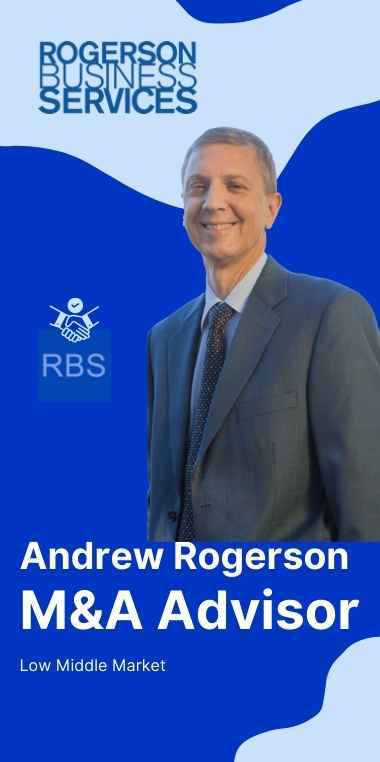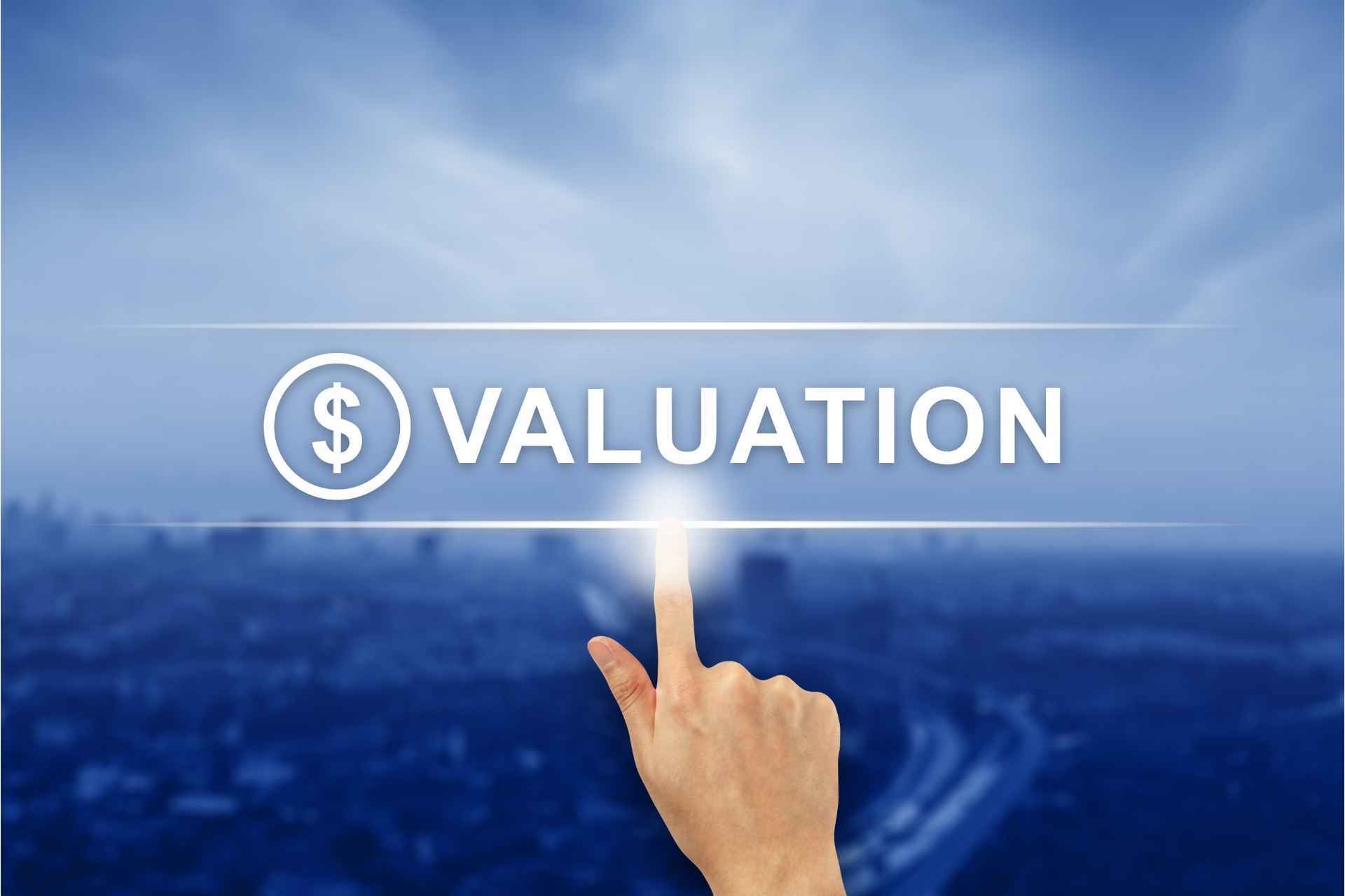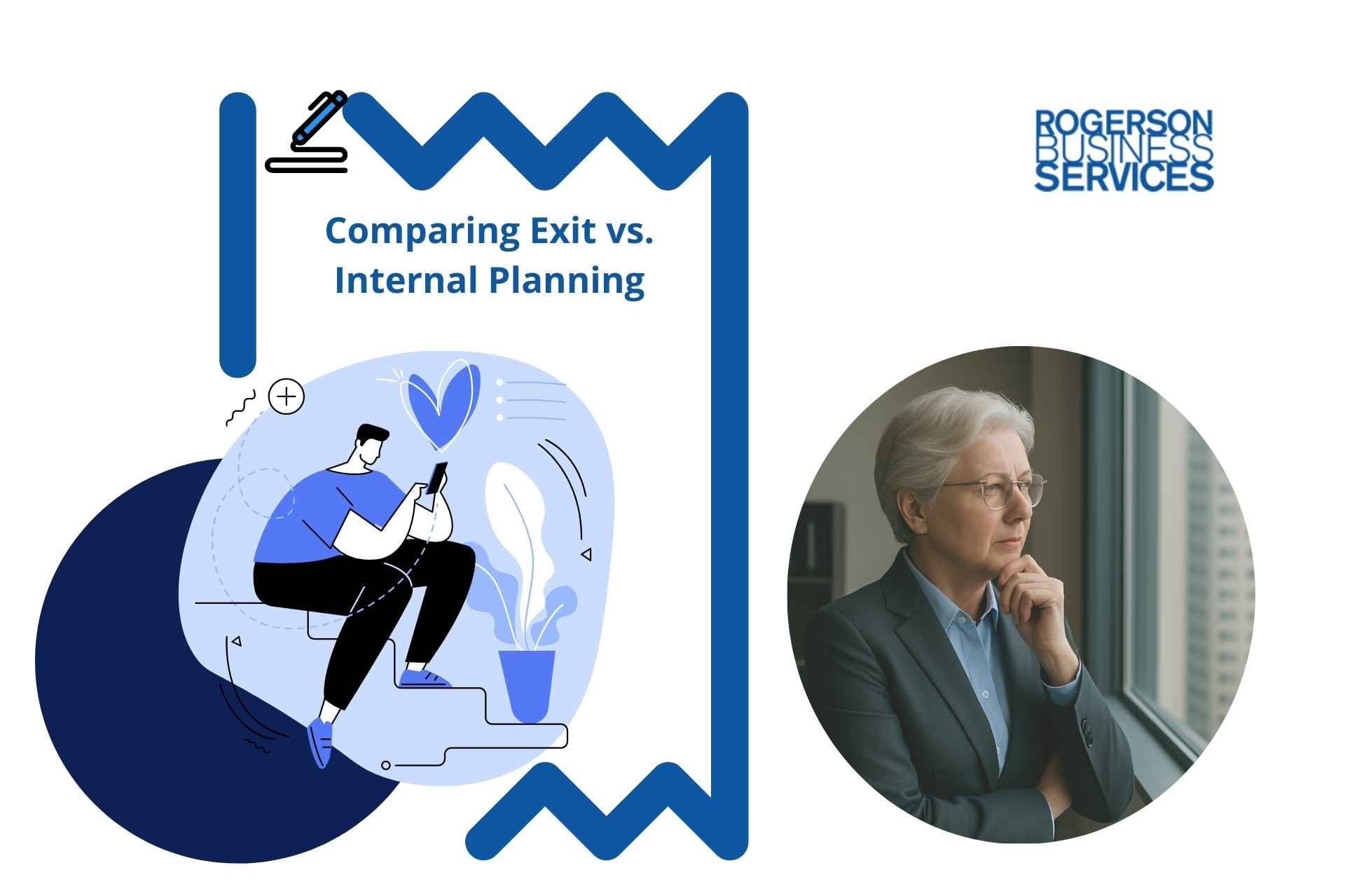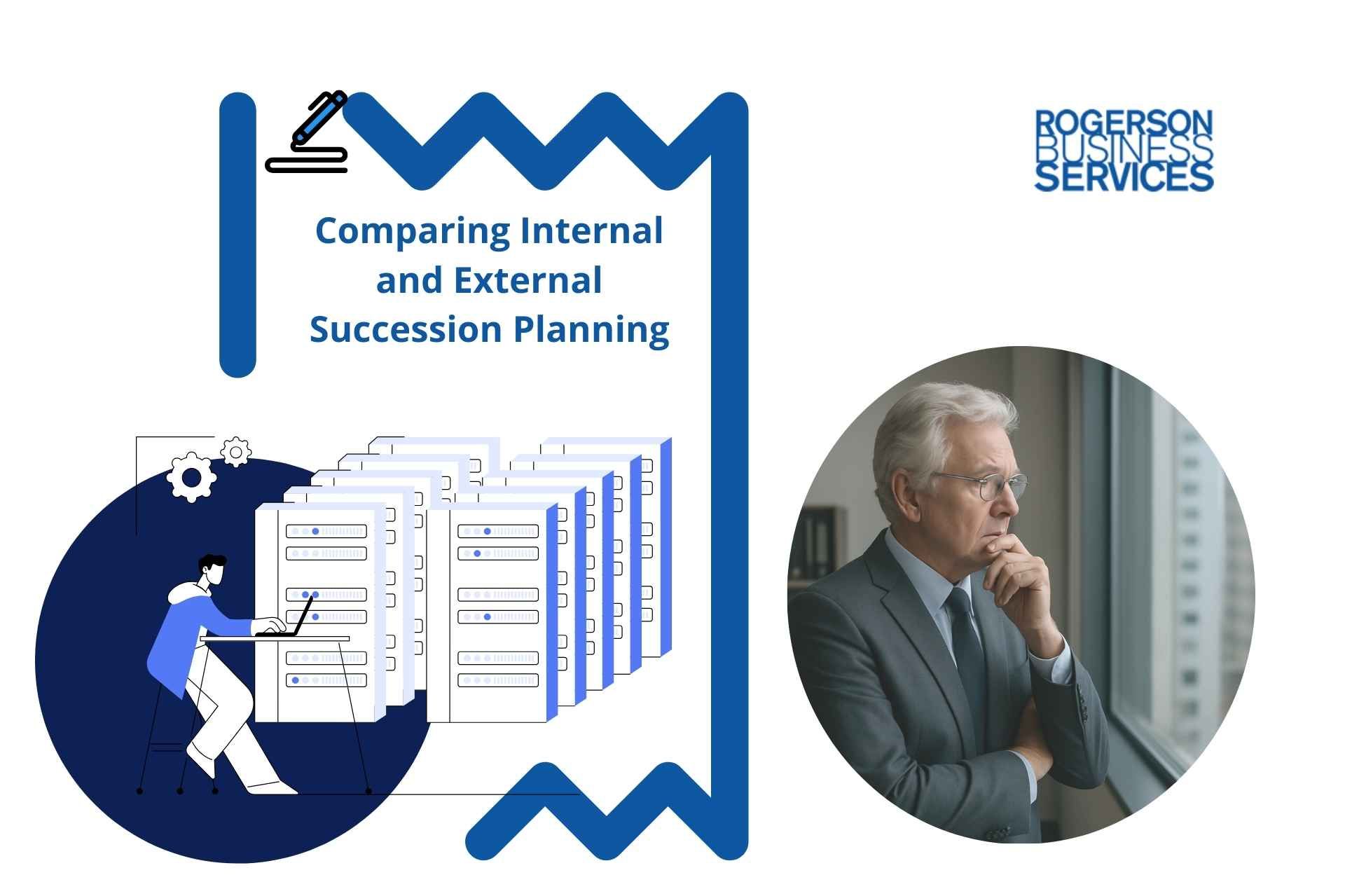Guide To Help Sell an Automotive Company
Considering selling a lower middle-market Automotive company in California can be overwhelming. Without a proper, well prepared, exit plan, and a middle market business broker to facilitate the process, there is no way to guarantee that you made the right decision.
Get The Guide
M&A Guide
Increase Your Chance Of Success!
Guide to Help Exit an Automotive Company
Everything you need, all in this sell an automotive business guide
Exit an Automotive Company
After pouring years of time and money into your automotive company, there comes a point in most people's lives when they're ready to retire or move on to a new endeavor. As a business owner, you likely encountered and overcame learning curves during your career. However, the learning curve of selling an automotive company is massive.
Since it's typically done only once in a person's life, it's helpful to hire an M&A broker to help you develop your exit strategy.
An exit strategy will ensure your business is in the best shape possible for showing it off to buyers. It'll also detail ideas for helping you to maximize your profit when you go to sell your company.

Top Reasons to Consider an Exit Strategy
An exit strategy is a plan for how an owner will transition their business to a new owner. Ideally, you should develop a business owner exit strategy plan well before you intend to sell your company. That way, you can identify areas you can work on to increase your business' value before you sell it.
Below are ten reasons why considering an exit strategy is important.
1. Identifying Buyers
Buyers have different needs when looking to purchase a business. By having a well-developed exit plan, buyers will quickly determine if purchasing your company is a good fit for them. Therefore, you'll save time sorting through offers that wouldn't have been a good fit for you.
2. Understanding Taxes
You'll need to pay taxes when you sell your business, but just how much you pay will depend on how you sell it. By working with a lower middle market M&A broker during the exit strategy process, they'll be able to show you the estimated taxes you'd have to pay under various scenarios.
3. Preparation for Unexpected Offers
Growth through mergers and acquisitions is becoming a popular buying strategy for lower middle market companies looking to reduce their competition. Often, buyers don't know how to respond to offers involving growth through acquisitions. By having an M&A exit strategy framework, you'll already have a predetermined plan for how you'll handle such requests.
4. Goal Setting
Since business exit strategy planning typically takes place a year or more before you plan to sell your company, it allows you to identify areas that you can improve upon to increase its value. By setting goals and relaying those goals to your team, you can work together towards benchmarks that may repay you once you put your automotive company up for sale.
5. Business Valuations
Business valuations are one of the most critical aspects of the exit strategy because it gives you an estimate of how much money you can expect to receive from your company. It's essential to have a professional M&A broker perform your business valuation since it will show potential buyers that your business' price is fair and that you're taking the selling process seriously.
6. Promote a Smooth Transition
Transitions are always a sensitive topic when a new owner takes over a business. Employees, vendors, and customers are often leery of new management until they have time to build trust. By having an exit strategy, you can lay out requirements for the buyer to make the transition smoother.
7. Understanding Timing
It's best to sell your automotive company during a period when your profits are the highest. An exit strategy will help you analyze market trends and your business' history to know when the best time is to sell so that you can maximize profits from the sale.
8. Personal Issues
Personal emergencies can happen, but if you're in the middle of selling a business, there are often time-sensitive situations that can't wait for you to take time off. An exit strategy offers a detailed account of how you want the sales process to take place so that someone can easily pick up where you left off in your absence. If you have an M&A broker, that person will already be doing the leg work of selling your business, whether or not you're present.
9. Assessing Options
If you don't have an exit strategy, you might accept the first offer that comes in, or you might feel like you've gotten pigeonholed into a narrow group of options. However, an exit strategy will help you expand your understanding of the different buyer options out there, allowing you to identify potentially higher-paying buyers.
10. Recessions
There's no way to predict a recession, whether it be on a global scale or local to your industry. Nevertheless, an exit strategy will plan how you'll handle the possibility of a recession. It will guide you in knowing if you should try to sell or hold on to your business until the recession passes and minimize losses during that time.
Many people aren't sure how to prepare an exit strategy, so they enlist an M&A broker's support. That's an excellent business decision, as it'll save you time and ensure your exit strategy doesn't have any missing pieces.
How to Sell an Automotive Business
Preparing to sell your California automotive business isn't an easy task. There are several initial questions you should be able to answer before moving forward with selling. They include:
- Does it make financial sense to sell your company?
- If you didn't sell your automotive business and continued operating as it is today, what kind of earnings would you receive?
- Will you make a profit from your business after factoring in the cost of taxes and advisors?
- What will you do with the earnings from the sale? Will you receive a substantial rate of return for those proceeds?
- If you have business owners, do they also want to sell the business?
Need help with valuing & selling your automotive company?
Rogerson Business Services (RBS) is an M&A Advisory for lower middle market businesses that is built on trust and ethics. Andrew Rogerson, Certified M&A Advisor, can help you find answers to all your questions, introduce you to better opportunities, and manage the buying and selling an automotive company in California process's integrity while keeping every aspect of sales confidential.
Sell-Side M&A
Four step process to market your California lower middle market business for sale
01 Exit Plan - business valuation
Your potential buyers can come from many areas. Employees, individual and group investors, Private Equity Groups, and even competitors who may have an interest in purchasing your business. If a competitor is interested, you don't want to reveal too much information about your business, especially anything that could hurt your business if the deal falls through.
Once you decide to sell, get your business ready, and get help from a trusted and accredited California M&A Advisor.
An M&A Advisor will vet potential buyers to make sure they are qualified and are serious about purchasing your business.
A California Licensed M&A Advisor knows the ins and outs of selling a California business and can help you get your business in shape to get you the best deal.
02 Buyer Analysis
One of the first things your M&A Advisor will do, is help you to create an exit plan. An M&A Advisor knows exactly how to plan an M&A exit strategy. In fact, you might get a M&A Advisor to help you with an exit plan long before you're ready to sell your California company.
An M&A Advisor is knowledgeable about how to calculate the value of a business to sell and will aim to get the highest value for your business. Once everything is ready to go, they'll list your business for sale. An M&A Advisor will be an expert at listing a California businesses for sale.
After your business is listed, the M&A Advisor will handle all the marketing of your business to promote deal origination and get you in front of potential buyers. They'll also set a buyer list and work with you to figure out who to go after for the best value.
03 Deal Origination - marketing
An M&A Advisor will then work to get you as many qualified and motivated buyers of your business as possible.
They will market your business through the proper channels, including social selling and targeting and generating interest. They'll vet and follow up with interested buyers whether off-market or publicly listed.
Once the offers come in, your M&A Advisor will evaluate all offers and conduct market offer analysis to make sure you're getting the best deal.
04 Negotiation & Closing
Buyer Due Diligence
Once a buyer is performing their own due diligence, the M&A Advisor will help you navigate the process to make sure everything is running smoothly. They'll negotiate a Letter Of Intent between you and the buyer to lay out the proposed aspects of the deal. Your M&A Advisor will also help you gather all of the necessary paperwork discussed above. If the buyer asks for additional documentation, your M&A Advisor can help guide you.
As a buyer is going through the due diligence process, they will be on the lookout for red flags about your business. An experienced M&A Advisor is knowledgeable about these warning signs and can help you prevent them. Red flags may include refusing to disclose why you're selling, not allowing time to conduct due diligence, refusal to introduce the buyer to employees, suppliers, landlords, and more.
Definitive Purchase Agreement
The M&A Advisor will oversee the Definitive Purchase Agreement with the help of the transaction attorneys to make sure both parties are happy with the terms. A Definitive Purchase Agreement protects both you and the buyer as it will clearly state exactly what is and is not being sold. It can also protect the buyer from certain liabilities. A Definitive Purchase Agreement will also help you deal with the legal complexities of selling a California lower middle market business.
Once the Definitive Purchase Agreement is finalized, the M&A Advisor will help with any final items that need to be done as part of the closing process including working with a California Licensed Escrow company.
Closing - Finalize the Transaction and Close the Deal
Finally, your M&A Advisor will help prepare the close of your transaction. Once the closing is complete, they'll assist with overseeing the transition of the business change of ownership.

Types of Automotive Companies
Auto parts business opportunities and other automotive company sectors are thriving. If you want to put up your automotive business for sale in California, your company may fall under one of the following categories:
- Mechanic shop for sale
- Smog check business for sale
- Auto repair shop for sale
- Automotive parts business for sale
- Auto parts distribution business for sale
- Online auto parts business for sale
- Used auto parts business for sale
- Used car dealerships for sale
The list above is far from complete. For example, there are also tire shops for sale in California and automotive property for sale. You also will want to target your local region, such as auto repair shops for sale in southern California, or even more specific, auto shops for sale in Sacramento.
The major categories within these sub-sector lower middle market companies for sale include the following:
Automotive Parts
The automotive parts sector encompasses manufacturing, distribution, and retail. From wholesale auto parts distributors and general automotive parts distributors, if you have an automotive body shop, auto upholstery shop, or offer conversion services, among many others, you could be in an excellent position to sell your California business.
Automotive Components
Your automotive components business may involve manufacturing, distribution, or retail. While there are plenty of wholesale auto parts warehouse companies thriving, some automotive components businesses have transitioned to the Internet. For example, wholesale auto parts online businesses and used auto parts online businesses are popular among consumers and could help you gain a considerable profit from selling your company.
Electric Car Components
If you have an electric car components company, you could be in the manufacturing, distribution, or retail subsectors. Electric car component suppliers, electrical car parts wholesale, and automotive electrical repair shops are among some of the categories that your California business may fall under.
Electric Car Manufacturer
U.S. automotive industry statistics show that the electric car manufacturers list is growing thanks to an increased interest in sustainability. If you have a California company specializing in manufacturing electric cars, you're in a good position to sell your business. Due to this sector's competitiveness, you'll likely encounter growth through acquisition buyers.
Automotive Manufacturer
With people becoming increasingly dependent on vehicles, Californian automotive manufacturers are in an excellent position to sell their business. Whether you have an automotive warehouse or are among the wholesale auto parts suppliers, you can expect to experience many buyers interested in purchasing your company.
Automotive Dealership
There's always a demand for car dealerships for sale in California. New and used dealerships, along with Certified Pre-Owned vehicles, are options that consumers want to have. If you are looking to sell your automotive dealership, get in contact with an automotive M&A Advisor so that they can give you an estimate of what your company is worth.
Automotive
The automotive industry is booming since people always need repair, body-shop work, and maintenance on their vehicles.
Whether you have a business specializing in exhaust system replacement or rustproofing and undercoating, you will likely be able to lure in many interested buyers with your California auto repair shop.
Due Diligence Checklist for Selling a Business
An M&A financial due diligence checklist is ultimately the best way to ensure that you have everything in order and all the documents needed to sell a business. However, if you're trying to sell your business privately, below are some critical questions you should ask yourself.
- Do you have all key documents together so that they're easily accessible when a potential buyer asks to see them?
- Are all your financial statements, payroll registers, invoicing information, and customer lists, among others, well organized?
- Do you have all necessary data to calculate the EBITDA? You'll need to know the add-backs and adjustments on your income statement.
- Have you considered different approaches to selling your business? What are the estimated tax implications under each scenario?
Would you like to know what an M&A financial due diligence checklist looks like? Take a look at this handy document we've put together:
Business Buying and Selling Checklist.
Business Valuation: What's Your Automotive Company Worth?
A business valuation is a way for you to understand how much your company is currently worth. Many factors influence an evaluation, and much of it is in your control to make adjustments before you sell to increase your company's value.
Below are five of the most common factors that affect a business valuation.
1. Profit History
Prospective buyers will ask to see how much profit your company brought in over the last three to five years. They'll look for increased revenues and decreased expenses during that time. If your business performed the opposite, it would lower your business valuation. It's critical to be honest with your company's performance since buyers will ask to see financial statements during the due diligence process.
2. Potential for Growth
You don't have to act on items that could improve your business' future growth, but buyers will want to see that there's potential. That said, external factors you don't have control over, such as trends in the automotive industry, can also impact growth. The more perceived potential a business has for future growth, the higher its business valuation will be.
3. Diversification of Customers
Buyers want to know that you have, at a minimum, several clients with whom you work. That way, if one client stops working with your company, you don't lose your source of income. Your business valuation will be higher if you have a large customer base.
4. Dependency on Clients
If you only have a few clients who bring in most of your income, this is a risky situation for buyers. If one of those clients stops working with you, the company's profit will plummet. For this reason, business valuations favor companies that have income spread out among a large number of customers.
5. Owner Dependency
If you're the driving force behind your company and the person who brings in the most significant quantity of income for it, your business valuation will be lower. Buyers want to know that your company can sustain itself with the team you've built once the sale goes through.
What is the Role of M&A Brokers in Selling an Automotive Company?
M&A Advisors are your biggest advocate during the process of selling your business. They will ensure you have all your paperwork in order, perform a professional business valuation, vet potential buyers, and negotiate the best deal possible for you.
The vetting process can be intensive since many buyers will often show interest. However, they may not be serious about buying your business or are a competitor fishing for information. That said, selling to an acquisition-oriented company can be a lucrative move.
To set yourself up for success with acquisition-oriented buyers, you should be able to show a strong history of success within your automotive sector. You don't need to be a large company to gain growth through acquisition interest. Instead, these buyers are more concerned about your current profitability and the growth potential your business has.
In addition to acquisition buyers, potential buyers you may encounter include the following:
- Competitors
- Employees
- Individual investors
- Private equity groups
- Family offices
- Investors (strategic, synergistic, or corporate)
If you're working with a competitor, you mustn't reveal sensitive information that they could use against you, should they decide not to purchase your business. Knowing how to sell your business to a competitor takes time and experience.
Since it can be challenging to know just how much information to release, it's best to hire an M&A Intermediary to represent you. Your M&A Broker should have knowledge of the California market as its different to any other state in the US. They should also have experience in vetting potential buyers of all backgrounds and this will help ensure you receive the fairest deal for your business.
Phases that Your M&A Broker Will Manage
Your M&A Broker will support you with everything from forming your exit strategy to ensuring a smooth transition once you've sold your company. Below are the responsibilities that your M&A Broker will take on your behalf.
Exit Plan
An exit plan determines the best path you should take to sell your business. It forms the strategy to execute listing an automotive company for sale and identifies areas that you can improve upon to maximize your business's profits. Utilizing an M&A strategy is the ideal approach since brokers will be able to ensure that no stone is left unturned with preparing to sell your automotive company.
Business Valuation
You're likely wondering, what's the value of my business? There are several methods of business valuations you can use to secure the highest value for your company. Knowing how to calculate the value of a business for sale is complicated, but by following M&A trends in the automotive industry, your broker will be able to give you an excellent estimate.
Marketing
Your M&A Broker is responsible for preparing all activities to promote your company's deal origination. They'll also consult with their contacts, many of whom might know of people who are interested in purchasing your automotive business.
Buyer List
As you prepare to put your company on the market, your M&A Advisor will vet a buyer list. They'll cover their recommended prospects with you, and you'll give the okay regarding who they should go after to get the best value for your company.
Deal Origination & Outreach Program
During this phase, your M&A Broker will actively market the deal and contact vetted buyers. Their goal is to generate interest for your company and get offers.
Distribute and Content
Through social selling and targeting, your M&A Intermediary will continue to seek out and vet buyers. Lower and middle-market M&A Advisors have experience knowing where and how to perform these tasks, which would otherwise be time-consuming for you as the owner.
Evaluation
Once your M&A Broker generates enough offers, they'll evaluate them and conduct a market offer analysis. While this is an exciting phase for business owners, having your broker perform this task will save you time since they'll be able to pick through people who don't appear serious. That way, they'll present you with the best fit offers.
Negotiation: Buyer due diligence
Once you've selected your preferred buyer, your M&A Advisor will work on negotiating with that person. A portion of the negotiation involves agreeing to a set amount of time that the prospective buyer has to perform due diligence. Generally speaking, this is a thirty-day period.
Letter of Intent
A Letter Of Intent (LOI) is an initial, non-binding agreement between the parties in a proposed deal. The LOI establishes the aspects of the deal for buying and selling a business.
Due Diligence
The due diligence process offers buyers the opportunity to do an in-depth analysis of your company to ensure that everything you shared with them is accurate. Thirty days is the standard amount of time an owner offers a buyer to perform due diligence. During that period, the buyer will assess the following items:
- Income statements
- Records of accounts receivable and payable
- Balance sheets and tax returns, including business activity statements from the last 3 to 5 years
- Profit and loss records from the previous 2 to 3 years
- Cash deposit and payment records, as reconciled with the accounts
- Utility accounts
- Bank loans and lines or letters of credit
- Minutes of director and management meetings
- Audit work paper files, if they're available
- Your claims about why you're selling your business and how your perception of your business' reputation
- Privacy details involving employees, trading partners, and customers
- Stock
- Details about your plant, equipment, fixtures, and vehicles, including whether they're licensed and if they're in good working order
- Intellectual assets of your business such as intellectual property, trademarks, and patents
- Existing contracts with clients and staff
- Partnership agreements
- Lease agreements
- Details of your company's automated financial systems
- Information about your company's credit and historical searches
- Business valuation to ensure the asking price is fair
Warning Signs for the Buyer
Just like you're cautious about vetting buyers, potential buyers looking for California businesses for sale also take care in making sure you're a good fit for them. Your M&A advisor will work with you to ensure you avoid the following signs that could cause a buyer to not follow through with buying your company.
- Failure to disclose important information, including your reasons for selling, financial statements, licenses, permits, and staff contracts.
- Refusal to agree to a trial period or rushes the due diligence process (you should give the buyer a minimum of 30 days).
- Reluctance to introduce them to your suppliers, landlord, or estate agent.
- Current involvement in legal proceedings.
- Excessive eagerness to close the deal quickly.
- Questionable credit record and history.
If you want to sell your business online, you'll still be expected to allow time for due diligence and follow the same steps as you would in person.
Negotiating the Definitive Purchase Agreement
Offering middle-market businesses for sale involves several steps. The
M&A Advisor
works closely with you and your
legal advisor, especially while negotiating and finalizing the
Definitive Purchase Agreement. This Definitive Purchase Agreement helps both parties reach their goals for the transaction and allows no room for error as it completely represents the legal wishes of each party.
A good
M&A Definitive Agreement
is the lynchpin of a good transaction. Both seller and buyer exchange a large amount of information from different sources. This is often over many months of conversations. These exchanges are then condensed, with their individual interests, as best as possible into the Purchase Agreement.
Items a typical Definitive Purchase Agreement may include:
- Treatment of Shares, Options, and any other Securities; if appropriate to the transaction
- Representations and Warranties
- Covenants
- Solicitation (“No Shop” clause)
- Financing
- Termination Fee (or “Break-Up Fee”)
- Indemnification
- Material Adverse Change (MAC) and Material Adverse Effect (MAE) Clauses
- Closing Conditions
The Definitive Purchase Agreement can have potential pitfalls, so your M&A Advisor needs to keep the communication open with the Buyer and their Deal Team as well as the Seller and their Deal Team.
The M&A Definitive Purchase Agreement also needs to include details about tax obligations and consequences, especially if shareholders are involved.
Avoiding Pitfalls if you have a Buy-Sell Agreement
What if the seller is two or more individuals?
Many businesses have multiple owners or shareholders. Getting an agreement from a majority of the shareholders about selling the business and being willing to accept an offer can be challenging. One of the shareholders may not have any interest in selling the business at all or may want something specific most buyers will not be willing to agree. If this is the case, hopefully there is a Buy-Sell Agreement in place as this will outline what each shareholder needs to do. A few years previously I had a transaction with 9 shareholders. One shareholder with a minority interest initially refused to sell. Eventually they changed their mind but it was stressful while this played out.
If no Buy-Sell Agreement is in place and there is tension between the owners and shareholders, the pressure to decide the future direction of the business may be challenging. This article provides additional information for an owner or shareholder with
how to avoid buy-sell agreement pitfalls. To help their clients, M&A Advisors should understand the importance of assumption of liability, so their buyers and sellers know who is responsible for any lingering claims.
The agreement also needs to have information about indemnity clauses regarding operations. For Automotive Companies, concerns about environmental liability, breaches of warranties, and other issues need to be factored into the indemnity clauses of a Definitive Purchase Agreement.
Buy-sell agreements can be confusing, so it is helpful to learn
how to understand buy-sell agreements
and
how a buy-sell agreement can save a business.
Buy-Sell Agreement Benefits
The benefits of a buy-sell agreement are that it reduces the chance of having a lawsuit if an issue arises between you and your business partner. If one of your partners doesn't hold up their end of the deal, the agreement allows you to take action, such as dismissing that person from the company.
Additionally, the buy-sell agreement establishes how you and your business partners will handle bringing in a new partner if the situation arises. It's also beneficial because it offers insurable risk if, for example, your business partner passes away.
Buying and Selling A Business in California
Every state has its legal intricacies, and buying and selling an automotive company in California is no different. To sell your business, you'll need to make sure you have all the proper California licensing. You also need to understand state tax implications, which can vary depending on if you're undergoing a stock or asset sale.
Finally, California is unique because it requires an escrow in nearly every business sale circumstance. Doing so will protect both you and the seller. Your M&A broker and an attorney will ensure you have completed all the necessary steps for selling your California automotive business.
Negotiate the Terms
During this phase, it's your last opportunity to make any changes to the terms you've already established between you and the buyer. Your M&A advisor will ensure they secure the best terms possible for you, helping you to maximize your profit.
Finalize the Contract
Once the final negotiation stage is complete, your M&A advisor will finalize the contract with the buyer. Are you curious about what kinds of items go into ensuring flawless deal finalization? Our Business Transition Checklist will help you out.
Closing
During the closing process, you'll sign a business bill of sale, which is a document that confirms the transfer of ownership. Your M&A broker will then finalize the transaction and close the deal.
Transition
Transitions can be a sensitive time in the sale process. For this reason, your M&A advisor will stay by your side after you close on the sale to facilitate the business transition and ensure it goes smoothly.
Mistakes to Avoid When Selling an Automotive Company in California
Selling your business on your own is a mistake for various reasons, one of which is that you're so personally connected with your company that it can be difficult to analyze it objectively. Lower middle-market businesses for sale benefit from hiring lower middle market M&A brokers to avoid several common pitfalls.
Let's look at six reasons why you should seek the support of an M&A broker.
1. Dependency on One Factor
If your business' success relies on a single customer, employee, or vendor, it's going to be challenging to sell your automotive company. From a buyer's perspective, they'll lose large profits if a vendor or employee quits. Ideally, you should aim to have 15% or less of your revenue from a single source. Your M&A broker will offer advice on how you can overcome dependency.
2. Lack of Growth Forecasting
Buyers want to know that your company is in an excellent position to grow. You don't have to move forward with those growth strategies, but you will have to research and show proof that there's potential. As part of the exit strategy, your M&A broker will support you with designing a growth plan.
3. Few Profits
The more cash your company brings in above your expenses, the more valuable it will be. An M&A advisor can help you increase your cash flow by offering advice on accelerating accounts receivable and extending accounts payable.
4. Lack of Recurring revenue
If your business sells a product that doesn't have the potential for recurring revenue, it's less valuable than a company with, for example, a subscription-based model. Your M&A broker can help you brainstorm ways to boost revenue or show a growth strategy for recurring revenue.
5. Commoditized Company
If there are many companies like yours, it'll be challenging to secure a high paying buyer since commoditized businesses require keeping prices low to keep up with their competitors. Commoditized automotive company owners should work with their M&A broker to identify ways to differentiate themselves on the market.
6. Dependency on the Owner
Suppose your company's profits and success depend on your presence or personal relationships with customers or vendors. In that case, it's going to be difficult to sell it for a high value. Your M&A broker can advise you on ways to step back from your company while keeping it thriving, thus making it more attractive to potential buyers
Problems in Growth Through Acquisition
Although selling your company to a buyer with a growth acquisition strategy is exciting for you as the owner, it's often stressful for your employees, clients, and vendors. These people often have an initial distrust towards the new management and are leery about the impact of their work and relationships until they gain confidence.
On the buyer's side, they may not have done their full due diligence before purchasing the company. That's a common scenario for lower middle-market mergers and acquisitions companies since they tend to acquire businesses quickly. As a result, poor matchmaking and miscalculations during the transition can occur.
To prevent issues that arrive with growth through acquisition, you should work with your M&A broker to include clauses in the final agreement that will reduce the chances of a conflict.
Selling an Automotive Company FAQ
Now, let's look at some common questions about selling an automotive company in California.
I want to sell my business: where do I start?
A lot of people wonder, how do I sell my business or how to sell my business? Successful mid-market businesses for sale begin with an exit strategy. An exit strategy will help you vet buyers, ensure your paperwork is in order, and identify ways for you to increase the value of your business before you sell it.
While it's possible to do so on your own, experts recommend hiring an M&A broker to support you. In the meantime, you can take a look at our
Buying and Selling a Business Checklist
to get you started.
How much can I sell my business for?
One of the most common questions business owners have is this: how much is my business worth? Everyone wants to put up a multi-million-dollar business for sale, but knowing how to value a company based on revenue is the wrong approach. For this reason, whether you want to put up your automotive business for sale in California, having an M&A Broker perform a professional business valuation is critical.
If I sell my business, how much tax will I pay?
Mid-market companies for sale all have to pay taxes, but the amount you pay depends on the state you live in and the type of transaction. An M&A Broker will support you with analyzing different approaches to help you secure the lowest tax amount possible.
How do I sell my business privately?
Wanting to know how to sell a business privately often goes along with a business owner wanting to know how to sell a business quickly. If you have a niche that someone directly approaches you about, such as a smog shop for sale in Sacramento, you might be inclined to sell your business privately. You also might want to sell a business online through private means.
However, even when dealing with lower middle market private equity, it's best to hire a professional M&A broker. That way, you can ensure the sale is legally binding, and you secure the highest value possible for your company.
Conclusion
Selling an automotive company is an exciting and intimidating period in one's life. If you're itching for lazy retirement days or changing gears with a new project, enlisting the support of an M&A broker will save you time and help you maximize profit from selling your business.
At Rogerson Business Services, we have years of experience selling automotive companies in California. Feel free to reach out to us for a consultation whenever you're ready.
Business Valuation
What is it? Why do I need one if I am planning to sell a business? What is my business worth?
M&A LOWER MIDDLE MARKET ADVISORY
Why Work With Rogerson Business Services?
Business Valuation
Many sellers neglect the business valuation and methodology early in the process, only to become frustrated after the deal has been finalized. Rogerson Business Services can help you understand the value of your business based on different methodologies.
Legal Due Diligence
When selling a business, the legal standing of the business determines the smoothness, efficiency, and speed at which the transaction is finalized. M&A Advisors offer a sell-side M&A process backed by the viability of a California Licensed business or transaction attorney. With a licensed California M&A Advisor, you can be certain the legal documents involved in the sell-side M&A process is detailed and accurate.
Business Analysis
To avoid wasting time with unqualified buyers, get help from a trusted, licensed, and accredited California M&A Advisor. An M&A Advisor will vet potential buyers to make sure they're legitimate and are serious about purchasing your business. An M&A Advisor knows the ins and outs of selling a lower middle market business and can also help you get your business in shape to get you the best deal.
Financial Due Diligence
Our service includes deal team professionals to assist you. From financial to legal documents to tax and procedures, we want to make sure you are covered.
If you have your own in-house team of advisors, Rogerson Business Services can help make the M&A sell-side process as easy as possible by offering insights that help the team understand and are in alignment with the same goals as yours.
Definitive Purchase Agreement
The Definitive Purchase Agreement is usually extremely complex. It is easy to overlook all the terms and legal jargon, but every paragraph is important and duly considered. It is therefore critical to ask questions and ensure you are comfortable with the final set of legal documents you need to sign.
M&A Sell-Side Targeting
Rogerson Business Services provide Mergers & Acquisition M&A Sell-Side Advisory. We zero target off-market, accretive, private equity and strategic buyers with an interest in lower to middle market companies or businesses to maximize incremental growth value.
Ten Reasons to Plan a Business Exit Strategy with
Rogerson Business Services
1. Ethics
Rogerson Business Services are members of the M&A Source, International Business Brokers Association (IBBA) and California Association of Business Brokers (CABB) and adhere to their code of ethics.
2. Confidentiality
Rogerson Business Services assists you professionally in a highly confidential manner to protect your personal and financial details.
3. Vetted businesses for sale
Rogerson Business Services have access to an inventory of businesses including unlisted businesses for sale in California.
4. Facilitator
Rogerson Business Services are specialists in business transitions and understand the need to respect all parties in the transaction. There are many steps to value, sell and buy a business. Rogerson Business Services have successfully navigated these steps many, many times.
5. Valuation
Rogerson Business Services can provide you an opinion of value of a business you wish to sell or buy.
6. Due diligence and escrow
Rogerson Business Services has the knowledge to work through leases, franchise agreements, finance requirements, licensing, California escrow requirement and many other items so the sale of a business is successful.
7. Negotiation
Rogerson Business Services practice win/win negotiation skills. Negotiations are rarely perfect and so a win/win approach is the best way forward.
8. Financing and funding
Rogerson Business Services has professional lenders that can assist with finance to successfully buy a business.
9. Resource
Rogerson Business Services is an active member in the associations of the M&A and Business Broker industry including M&A Source, the International Business Brokers Association (IBBA), California Association of Business Brokers (CABB), International Society of Business Appraisers (ISBA) as well as other professional organizations.
10. Closing and transfer
Rogerson Business Services works with you each step of the way. This includes managing the buying or selling of your business through initial negotiations, due diligence, escrow and the all-important closing.
FAQ's
Sell-Side M&A
Sell an Automotive Business
Automotive Business Valuation
We built this amazing step-by-step-guide to help "Exit an Automotive Company" - it is yours (free)
Rogerson Business Services provide Mergers & Acquisition M&A Sell-Side Advisory. We zero target off-market, accretive, private equity and strategic byers in lower middle market companies or businesses to maximize incremental growth value.






